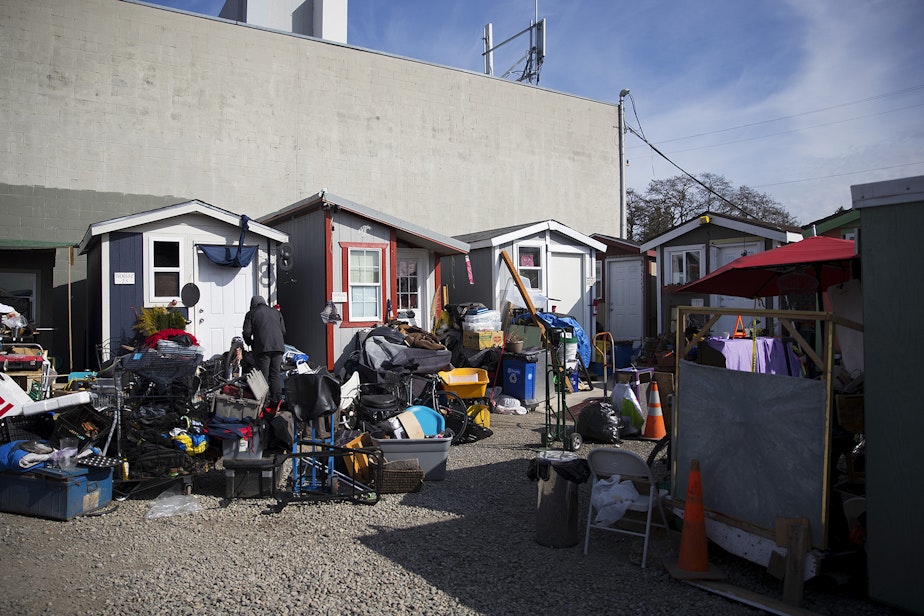North Seattle tiny house village responds to neighbor complaints

Changes are coming to the tiny house village in Seattle’s Licton Springs neighborhood.
Amid concerns from neighbors and uncertainty about whether the City of Seattle will renew the camp’s permit to remain on Aurora Avenue North, the site is getting tighter security and improvements for its homeless residents.
The fixes were announced this week when the city posted an update on all seven of the authorized villages around Seattle.
Josh Castle is with the Low Income Housing Institute (LIHI), the group that operates that camp. He said they’re responding to concerns from community members about a perceived uptick in crime.
"We moved the entrance and added some extra security to it,” Castle said. “We’re adding basic cameras so people are monitored when they're going in and out and they can only go in and out one place... on top of that we're adding additional lighting, and then we're improving our disposal and containment of hypodermic needles."
Sponsored
Licton Springs is one of the city’s only low-barrier authorized encampments. That means people with substance abuse issues can live there and drug use is allowed within the tiny houses.
Roughly 60 men and women live in the camp at any time. According to data from King County, 36 percent of people who lived in the camp between April 1, 2017, and March 3, 2018, left for permanent housing. The data indicates the average length of time a resident stays in the village is over five months.
Castle said their improvement plan will include increased trash cleanups around the camp and security perimeter checks.
In addition, dorm-style tents in the village will be replaced by extra tiny houses for residents who are not already in their own space. Better hand washing stations, reduction of hoarding on-site, and rodent abatement are also on the list.
“I think it’ll help alleviate some of the concerns people have,” Castle said of the improvements.
Sponsored
Kathleen Braden, a neighbor and member of the Licton Springs Community Council, said she feels the jury is still out on whether these improvements will be enough.
She said the neighborhood has been disappointed with a lack of follow through from the city in the past.
The improvements will be evaluated by a City contract team in early August.
Castle said the city is still considering whether to renew the camp’s permit and allow the village to remain in the Licton Springs neighborhood for another year.
He said the changes being made will help inform the city’s decision.
Sponsored
According to the city, over 250 people were referred to tiny house villages in 2017. The villages represent more than 12 percent of all the shelter beds the city supports.
